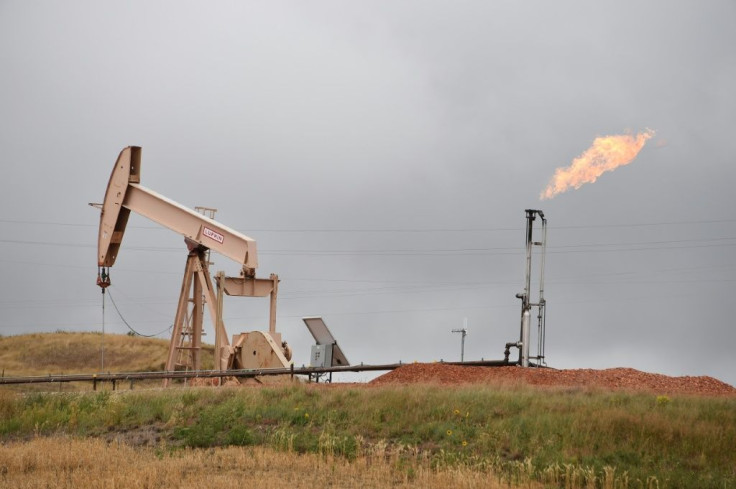Oil Prices Drop To Record Low, Negative Territory Amid Coronavirus Pandemic Woes

KEY POINTS
- EIA figures only go back to 1974. At that time, oil was trading at $6.77 to $7.09
- The May contract expires Tuesday
- Producers are running out of storage space for their output, the result of a global economic slowdown because of the coronavirus and the Saudi-Russian price war
A Tuesday expiration deadline, massive drop in global demand and surplus production combined Monday to send oil prices plunging into negative territory for the first time. The May contract plunged $55.90 to a negative $37.63 a barrel.
“The May crude oil contract is going out not with a whimper, but a primal scream,” Daniel Yergin, a Pulitzer Prize-winning oil historian and vice chairman of IHS Markit Ltd., told Bloomberg.
Demand for crude has dropped precipitously in recent weeks as industrial and economic activity has ground to a halt, the result of stay-at-home orders and complete lockdowns around the world to stem the spread of the coronavirus, which has infected nearly 2.5 million people, killing more than 169,500 worldwide.
The May contract for crude expires Tuesday. Many traders bailed on Monday, sending prices more than 200% lower. Contracts for subsequent months also were slightly lower.
The oil glut was exacerbated by a price war between Saudi Arabia and Russia after Moscow refused to agree to cut output ahead of the expiration of the OPEC+ production agreement. Both countries cranked up production until an agreement was reached a week ago, but it doesn’t appear to have had much of an impact on either prices or output.
“There is little to prevent the physical market from the further acute downside path over the near term,” Michael Tran, managing director of global energy strategy at RBC Capital Markets, told Bloomberg.
“Refiners are rejecting barrels at a historic pace and with U.S. storage levels sprinting to the brim, market forces will inflict further pain until either we hit rock bottom, or COVID clears, whichever comes first, but it looks like the former.”
Standard Chartered’s Paul Horsnell said U.S. drilling is at a standstill, with 13% of operations closed down.
“People are concerned that we are going to see so much buildup of inventory that it’s going to be very difficult to fix in the near term and there is going to be a lot distressed cargoes on the market,” Michael Lynch of Strategic Energy & Economic Research Inc. told Bloomberg.
© Copyright IBTimes 2025. All rights reserved.




















